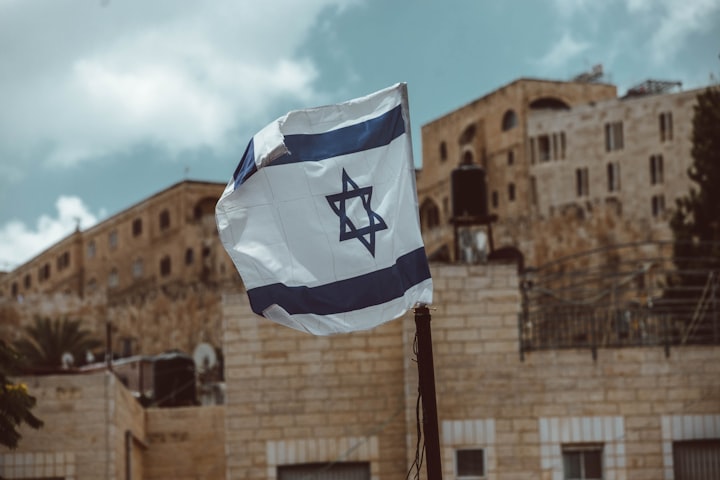Israel's Complex History of Conflict: A Deep Dive into the Ongoing Struggles
The Israel-Palestine conflict is a complex and deeply rooted issue with historical, political, religious, and humanitarian dimensions. The ongoing struggles in the region have resulted in tremendous suffering for the people living there.

Israel's Complex History of Conflict: A Deep Dive into the Ongoing Struggles
Introduction
The state of Israel, a nation that emerged from the ashes of the Holocaust and the Zionist movement, has been at the center of numerous conflicts throughout its history. The Israel-Palestine conflict, in particular, has garnered global attention for decades. This article will delve into the complexities of Israel's wars and conflicts, their historical context, and the intricate web of political, social, and religious factors that have contributed to the ongoing struggles in the region.
1. Historical Background
To understand Israel's wars, it's essential to delve into the historical roots of the conflict. The Zionist movement, which sought to establish a Jewish homeland in Palestine, gained momentum in the late 19th and early 20th centuries. The British Mandate for Palestine, following World War I, set the stage for escalating tensions between Jewish immigrants and the Arab population.
2. The 1948 Arab-Israeli War
The year 1948 marked a turning point in the region's history. The United Nations partitioned Palestine into separate Jewish and Arab states, a decision that was met with vehement opposition from neighboring Arab countries. The result was the first Arab-Israeli war, where Israel declared independence and fought for its existence. The war ended with a series of armistice agreements, leaving a divided and highly volatile region.
3. The Suez Crisis of 1956
The Suez Crisis, or the Suez War, was a conflict involving Israel, Egypt, the United Kingdom, and France. It erupted when Egyptian President Gamal Abdel Nasser nationalized the Suez Canal, a vital waterway controlled by Britain and France. Israel's involvement in the crisis was primarily due to its security concerns and territorial disputes. The crisis ended with international pressure, but it further intensified tensions in the region.
4. The Six-Day War (1967)
The Six-Day War of 1967 was a pivotal moment in the Arab-Israeli conflict. Israel's pre-emptive strike against Egypt, Jordan, and Syria resulted in a swift and decisive victory. The war led to the occupation of the West Bank, Gaza Strip, Golan Heights, and Sinai Peninsula, which shaped the future of the conflict, particularly in the Palestinian territories.
5. The Yom Kippur War (1973)
In 1973, Egypt and Syria launched a surprise attack on Israel during Yom Kippur, the holiest day in the Jewish calendar. This conflict highlighted the enduring enmity in the region and the volatile nature of Middle East politics. The war ended with a ceasefire but further deepened the mistrust between the involved parties.
6. The Lebanon War (1982)
The Israel-Lebanon conflict in 1982 was a complex and brutal war that saw Israel invade Lebanon in an attempt to eliminate Palestinian militant groups operating from the country. This conflict had a profound impact on the region, leading to significant geopolitical changes and the emergence of Hezbollah as a powerful player in Lebanon.
7. The First Intifada (1987-1993)
The First Intifada was a Palestinian uprising that began in 1987, marked by widespread protests, civil disobedience, and violent confrontations with Israeli forces. This grassroots movement sought to draw attention to the Palestinian cause and change the status quo. The Intifada eventually led to the Oslo Accords, a milestone in Israeli-Palestinian relations.
8. The Oslo Peace Process
The Oslo Accords of 1993 and 1995 marked a historic attempt to address the Israeli-Palestinian conflict through a negotiated peace process. Under these agreements, both parties recognized each other's legitimacy and agreed to a framework for a two-state solution. Unfortunately, the peace process encountered numerous challenges, including political assassinations, continued violence, and settlement expansion.
9. The Second Intifada (2000-2005)
The Second Intifada, also known as the Al-Aqsa Intifada, erupted in 2000 and was marked by increased violence, suicide bombings, and military operations by both sides. The violence had a devastating impact on the lives of ordinary Palestinians and Israelis and further complicated efforts to reach a lasting peace.
10. The Gaza Conflict
The Gaza Strip, a densely populated enclave, has been a focal point of conflict since Israel's unilateral withdrawal in 2005. Hamas, an Islamist militant organization, took control of Gaza in 2007, leading to periodic confrontations with Israel. These conflicts, often characterized by rocket attacks and Israeli military responses, have caused immense suffering for the civilian population on both sides.
11. The Role of Settlements
Israeli settlements in the West Bank and East Jerusalem have been a contentious issue throughout the conflict. Settlement expansion has significantly complicated the prospect of a two-state solution by altering the demographic and territorial realities on the ground. The international community considers these settlements illegal under international law.
12. The Peace Process Stalemate
Efforts to revive the peace process have faced significant obstacles, with both sides laying blame on each other for its failure. Disagreements over core issues, including borders, refugees, and Jerusalem, have remained unresolved. The U.S. has played a central role as a mediator but has encountered difficulties in brokering a comprehensive agreement.
13. Recent Developments
In recent years, several key developments have influenced the dynamics of the Israel-Palestine conflict. The Trump administration's recognition of Jerusalem as Israel's capital and its endorsement of Israel's sovereignty over the Golan Heights created tensions in the region. The Abraham Accords, which saw Israel establish diplomatic relations with several Arab states, represented a significant shift in Middle East geopolitics.
14. Challenges and Prospects for Peace
The prospects for peace in the Israel-Palestine conflict remain challenging. Key obstacles include the division among Palestinian factions, the political landscape in Israel, and a lack of trust between the parties. International actors, including the United Nations, the European Union, and regional powers, continue to advocate for a negotiated settlement.
15. Humanitarian Concerns
The prolonged conflict has had severe humanitarian consequences. The people of Gaza, in particular, have endured numerous hardships, including a lack of access to basic services, economic deprivation, and restricted movement. Efforts by humanitarian organizations to address these issues have been hampered by the ongoing hostilities.
16. Conclusion
The Israel-Palestine conflict is a complex and deeply rooted issue with historical, political, religious, and humanitarian dimensions. The ongoing struggles in the region have resulted in tremendous suffering for the people living there. Achieving a lasting and just resolution to the conflict remains a challenging endeavor, but one that is vital for the security and stability of the Middle East and the world. It will require a concerted effort from all parties involved, as well as continued engagement from the international community. Only through dialogue, diplomacy, and a commitment to a two-state solution can the cycle of violence be broken, and the region find a path towards lasting peace.
About the Creator
Punit kumar
Name: Punit Kumar
Occupation: Professional Writer
Punit Kumar is a professional writer and creator. He is passionate about using his writing skills to tell stories and share his ideas with the world.
Punit is also a hard worker.






Comments
There are no comments for this story
Be the first to respond and start the conversation.